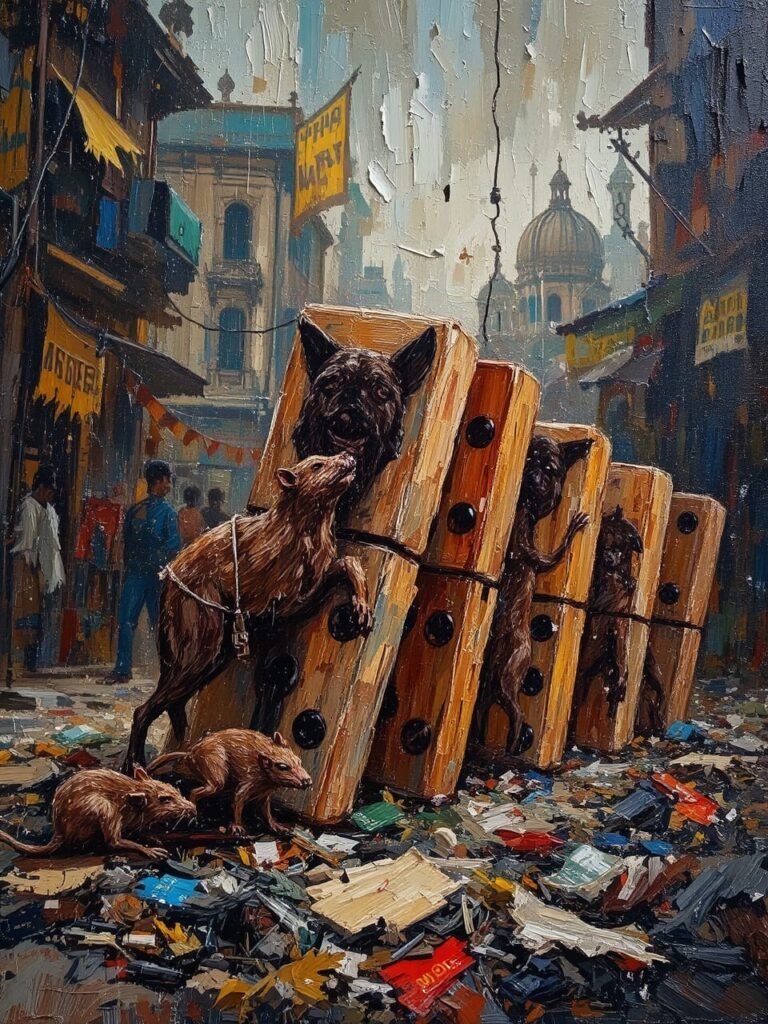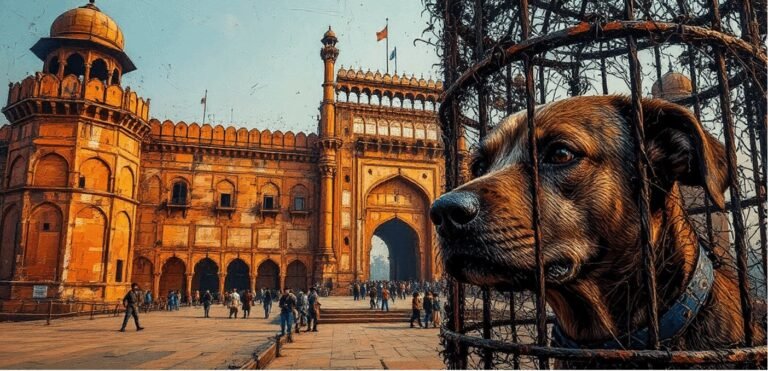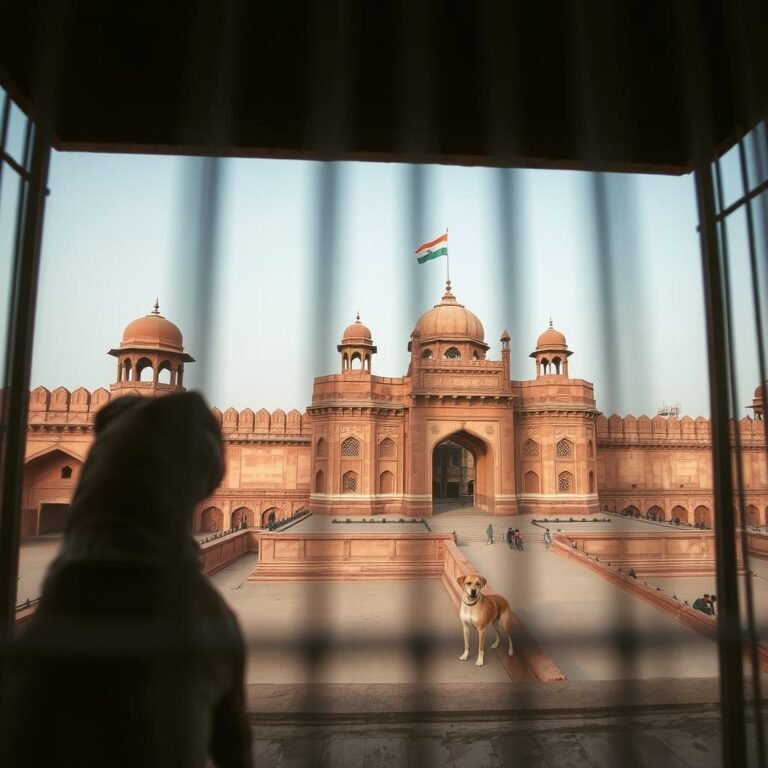It’s easy to cheer an order that promises “dog-free” streets, especially for those who dislike or fear them. But that cheer overlooks the massive, tangible costs that will be borne by every citizen. As reported by the SCC Times, the plan to capture and relocate an estimated 1 lakh stray dogs in the NCR is a logistical and financial nightmare. The cost of building shelters, feeding, and providing veterinary care could run into hundreds of crores annually, money that will inevitably come from taxpayer funds. These are funds that could have been used for essential public services like better infrastructure, cleaner water, or healthcare.
The problem, therefore, is not just about dogs on the street; it’s about the financial burden of an unworkable solution. The very people who are applauding this order will be the ones paying for its immense cost and suffering from the diversion of public funds from other crucial areas.
The Plague, Pigeons, and the Domino Effect
History offers a chilling lesson on the dangers of rashly disrupting an ecosystem. The story of the Black Death in 14th-century Europe, while debated by historians, serves as a powerful metaphor for ecological imbalance. The widespread killing of cats, often associated with witchcraft, is believed by some to have led to a population explosion of rats, the true carriers of the plague. Removing a single species, without understanding its role, paved the way for a human catastrophe.
This isn’t a lesson confined to history. A similar issue is already playing out in Mumbai, where the Bombay High Court has upheld a ban on feeding pigeons, citing public health risks. The move has faced opposition, with protesters arguing against the ban on the grounds of community tradition and animal welfare. The common thread here is a reaction to a perceived nuisance that fails to consider what comes next. If dogs are removed, and then perhaps pigeons, what’s to stop the next demand to remove another species deemed a “nuisance”? This path shapes a society that sees every non-human creature as a problem to be eliminated, rather than a part of a complex urban ecosystem.
Dogs: Our Unseen Guardians and Ancient Allies
The human-canine bond is not a modern invention; it’s an ancient alliance that has shaped humanity. Tens of thousands of years ago, a symbiotic relationship formed between early humans and wolves. These wolves, the ancestors of our modern dogs, provided a crucial advantage by helping with hunting, guarding campsites, and alerting humans to danger. This partnership is widely credited with aiding early human societies in surviving harsh environments and thriving, fundamentally shaping the course of human history.
In our modern urban settings, this alliance continues, albeit in a more subtle, often unacknowledged way. Stray dogs serve as a form of natural pest control, keeping populations of rats and other rodents in check. They also act as sentinels of their territory, their barks and presence often deterring crime and warning residents of unfamiliar presences. The very things people complain about—their territorial nature and barking—are precisely the mechanisms that create a stable and safer neighborhood ecosystem. Removing them won’t make the problems disappear; it will simply create a vacuum for other, potentially more dangerous issues to emerge.
The India vs. The West Fallacy: A Flawed Comparison
It is common to hear people compare India’s stray dog situation with that of developed countries, arguing for a similar “dog-free” approach. However, this comparison is deeply flawed. Developed countries often have robust, well-funded animal control and shelter systems, and their waste management infrastructure is highly efficient, leaving little food waste on the streets. In contrast, Indian cities face unique challenges. Stray dogs here often play a vital, though unacknowledged, role in managing urban waste, consuming food scraps that might otherwise attract pests. They also provide a sense of security for vulnerable populations, like street vendors and the homeless, who have no other form of protection. A one-size-fits-all solution, borrowed from a country with a vastly different social, economic, and infrastructural reality, is not only impractical but also dangerous.
The Real Problem: Incompetence, Not Canines
The core of this crisis is not a dog problem, but a governance problem. The Animal Birth Control (ABC) Rules, 2023, were designed as a humane and effective solution. They mandate the sterilization and vaccination of stray dogs, who are then returned to their territories to live out their lives. This model, when properly managed, has been proven to reduce dog populations and dog bite incidents over time.
However, the program has been a spectacular failure due to a lack of competent management and accountability. Funds meant for ABC programs have been mismanaged or siphoned off, and the authorities responsible have failed to execute the program effectively. The Supreme Court’s order to relocate an estimated 1 lakh stray dogs in the NCR, as per reports, is a reaction to this failure. Instead of holding the responsible parties accountable for their incompetence, the order directs them to carry out a logistical nightmare that is both unworkable and inhumane. The cost to feed and maintain these dogs in shelters could run into hundreds of crores annually, diverting public funds that could have been used for essential services.
A Plea to Our Shared Humanity
This order is a failure of responsibility. It punishes the voiceless for a problem caused by human mismanagement. In Indian mythology, dogs are revered. The Mahabharata tells the story of Yudhishthira, who refused to enter heaven without the stray dog that had accompanied him on his journey, revealing a deep-seated respect for the canine companion. This story reminds us of our duty to all living beings.
As citizens, we must look beyond the immediate-term satisfaction of a “dog-free” street and demand accountability for the failure of our civic bodies. We must advocate for the proper implementation of the ABC program, a solution that works for both humans and animals. This is our chance to choose a path of wisdom and compassion over one of fear and short-sightedness.








